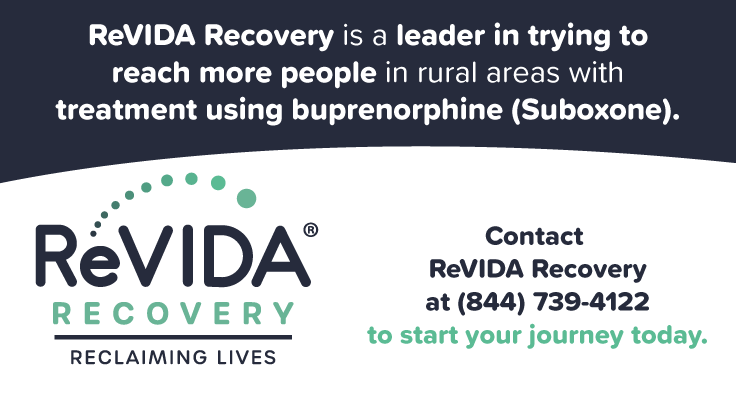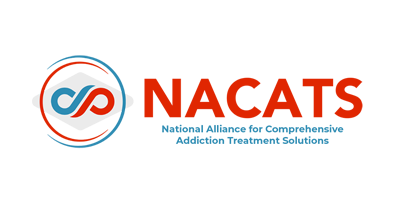
Opioid use disorder has affected the world at large, but it always feels different when it’s right in your own backyard. Rural communities have been dealing with opioid use and misuse for quite some time, and it’s usually assumed many in those communities have passed on. Rural communities consistently don’t have the access other communities have in terms of medical care, and some may want to deal with it on their own instead of getting treatment.
In this piece, we will discuss the reasons rural communities can’t get treatment and why medication-assisted treatment (MAT) with buprenorphine (Suboxone®) is a potentially life-saving option in those communities.
Table of Contents
Why Is Treatment Needed In Rural America?
Research published in the summer of 2018 by the Carsey School of Public Policy at the University of New Hampshire showed opioid overdose deaths in rural Midwestern counties in the United States were 16 times higher in 2016 than they were in 1999.
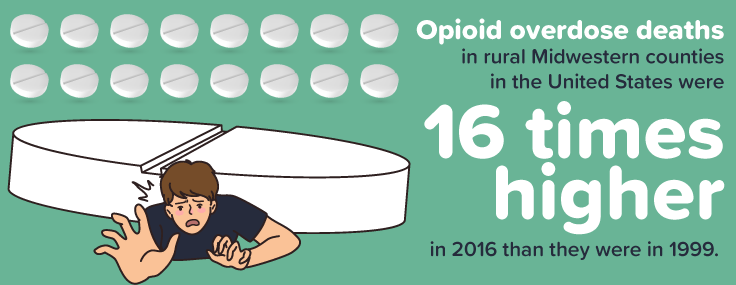
While opioid mortality rates remain higher in metropolitan areas of the country, there are pockets in which the rural rate of death by overdose outweighs that in nearby urban areas. For example, West Virginia led the nation in the rate of opioid overdose deaths with 32.3 deaths per 100,000 residents in 2012-2016.
Areas of Appalachia, including those in Kentucky and Tennessee, are among these pockets as well. Kentucky’s overdose death rate increased 50% in 2020, according to the Justice and Public Safety Cabinet of the state. These rates have mainly been influenced by the opioid epidemic, and while the state is taking steps in the form of bills and laws, the problem is far from being solved yet.
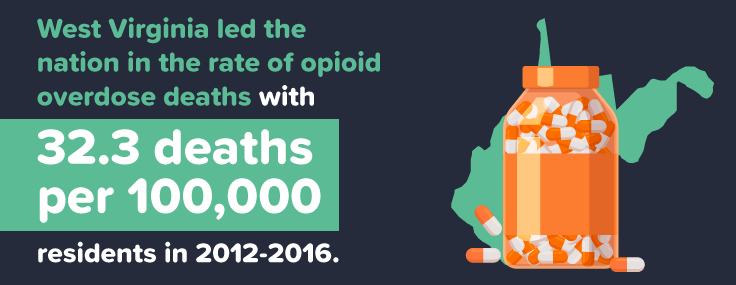
The opioid epidemic has hit Tennessee in a big way as well. Around 70,000 Tennesseans are struggling with opioid use disorder, and Tennessee ranks third in the country for prescription substance misuse. This has affected the whole state but has truly targeted the rural communities. Rural Tennessee has encountered many roadblocks that make it difficult to get treatment.
Finding Help in Rural Tennessee
Of the nearly 7 million people living in Tennessee, 1.5 million live in what are considered rural counties. While there is no exact research to show this, it is universally understood that most of those 1.5 million Tennessee residents are at a disadvantage in seeking treatment simply because of their geographic location.
Travel time is not the only issue rural citizens face. There are also many other obstacles that stand in the way of consistent treatment including: income, lack of healthcare, education, isolation, and employment. Let’s examine these reasons and possible solutions.
Income
A huge reason for many not getting treatment is cost. Unfortunately, treatment can be expensive. According to the Rural Health Information Hub, 15.4% of people in rural communities had an income below the poverty line in 2019. In rural Tennessee, this is even higher, with 16.3% being the poverty rate.
Treatment is life-saving, but for some can be a significant financial burden.
For those with a lower income, access to nearby healthcare can be pretty sparse as well. With 18% of adults being uninsured in these areas, their opportunities for healthcare are limited. In many areas in rural Tennessee, healthcare hasn’t been expanded.
This means there are over 380,000 residents without access to healthcare. Expanding Medicaid would lower the percentage of uninsured people and give many residents health care.
Travel
Have you ever felt like going to the grocery store is an all-day trip? There are many rural communities where every store, doctor’s office, and restaurant is 35 minutes away.
Behavioral health and addiction medicine can be even farther away. Outpatient care can be a three- to five-day-per-week commitment and the reality is that this isn’t possible for everyone.
This problem has been made more challenging by the 2020 pandemic as hospitals have been shutting down in the South, including Tennessee. With more hospitals shutting down and healthcare being expensive, residents may not feel the travel is worth it.
Work Conditions
Especially in eastern rural Tennessee, many jobs consist of manual labor. Coal mining, farming, and working at plants call for people to start work early and not finish until late. These jobs have also put residents at risk for more health issues, such as heart disease.
Most people can’t disrupt work by going to treatment. For example, inpatient treatment would be damaging to farming, and outpatient would be difficult because of travel expenses and long work days. Because of these factors, it can feel as if treatment is unattainable.
Isolation
Loneliness is a giant factor in those with opioid use disorder. While substance use happens in urban areas as well, rural areas don’t have as much social opportunity. Research shows the feeling of loneliness plays a big role in people using substances.
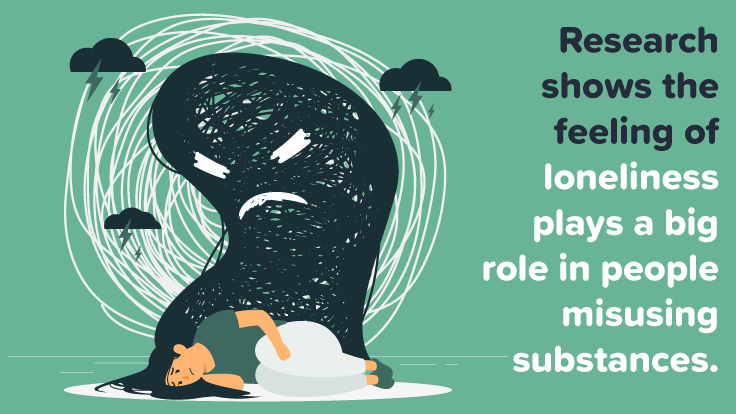
In an environment where work keeps people from family, there isn’t much socializing around the area, and when there are fewer people for smaller social opportunities, it can drive substance use. It also may be a problem because that is what many residents have seen as they’ve lived in the area.
Community
In so many areas, people focus on what is right in front of them. There is such a strong sense of community in rural areas, but sometimes that means the community is influenced by things that hurt them.
Many residents in rural areas spend their entire lives in the same region. Many people in these communities have grown up seeing substance use. With little to no social opportunity, the adolescents in these areas start to find ways to entertain themselves. Many young people may see substance use and will want to copy what they see.
Having access to certain substances can even increase one’s social capital (status and respect) in rural areas.
Pride
One of the biggest factors affecting anyone is the willingness to ask for help. This is especially true in communities where it feels like you need to be able to get by on your own.
Pride is part of the rural identity. In rural Tennessee, these areas are described by the state as, “proud and independent, preferring to take care of themselves without any outside help.” Many feel like they are admitting defeat when they seek treatment. While this pride can be harmful in terms of seeking treatment, this is something that many communities face.
Medication-Assisted Treatment (MAT)
How do we get treatment for rural citizens?
MAT is a program in which different medications can be taken to relieve withdrawal symptoms. These medications are approved by the U.S. Food and Drug Administration. There are several medications that are used to treat different types of disorders, but we will be focusing on buprenorphine (Suboxone®).
What Is Buprenorphine (Suboxone®)?
Buprenorphine (Suboxone®)? It’s a medication used in medication-assisted treatment to treat opioid use disorder.
Buprenorphine (Suboxone®) works by sticking itself to the opioid receptors in the brain. This stops cravings and helps people on their journey to recovery.
Myths About Buprenorphine (Suboxone)
While MAT is proven to be an effective form of treatment, there are still myths that persist around the topic. The same is true for Suboxone®.
One of the myths about buprenorphine (Suboxone®) is that it is often misused. People taking buprenorphine (Suboxone®) are taking it to lessen the withdrawal symptoms and are unable to achieve a significant high because of the presence of naloxone, which reverses the positive effects of opioids.
Another myth is that someone isn’t in recovery if they are taking buprenorphine (Suboxone®). It should be viewed as a medication for a long-lasting condition, like insulin for diabetes.
We must look at opioid use disorder, and how to treat it, in a different way. Every patient is different, which means what works for some might not work for others. This relates to the myth that buprenorphine (Suboxone®) can only be taken for a short time. While it can be taken for a short time, it can also be taken long-term as well.
There is also the myth that buprenorphine (Suboxone®) isn’t treatment if therapy is not involved with it. While therapy is effective along with medication, it also comes down to insurance and healthcare availability. Some plans may not have coverage for buprenorphine (Suboxone®) and therapy, but buprenorphine (Suboxone®) is still an effective form of treatment without therapy as well.
How It Can Help You
Buprenorphine (Suboxone®) can make a difference in rural communities. Buprenorphine (Suboxone®) can be taken on an independent basis. These medications can be prescribed for days or weeks at a time, based on the individual’s treatment plan. This can cancel out the stress of travel time and travel costs.
We Understand at ReVIDA Recovery®
Buprenorphine (Suboxone®) has changed how much access there is to treatment for communities throughout the country.
ReVIDA Recovery® is a leader in trying to reach more people in rural areas with treatment using buprenorphine (Suboxone®). ReVIDA Recovery® promotes safe and healthy communities by empowering individuals to reclaim their lives from opioid use disorder. We are currently accepting new patients.
Our buprenorphine (Suboxone®) program is medically supervised and will help you reclaim your life from opioid use disorder. Contact ReVIDA Recovery® at 844-972-4673 to start your journey today.
